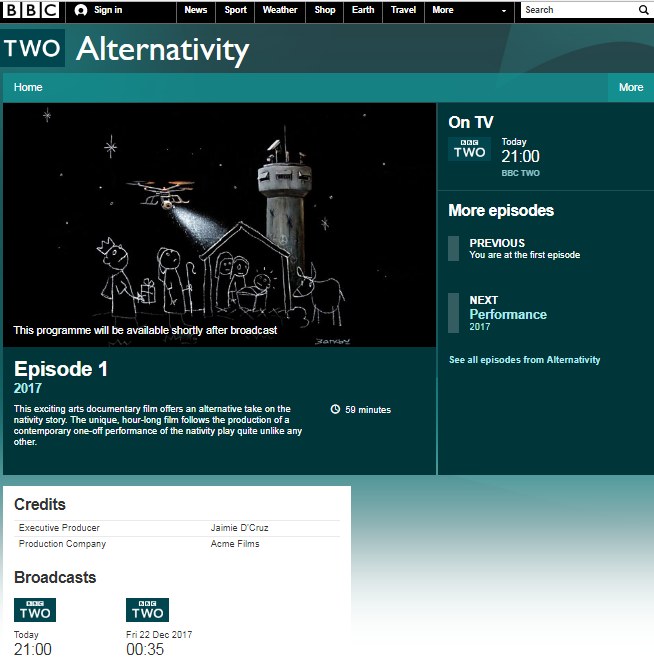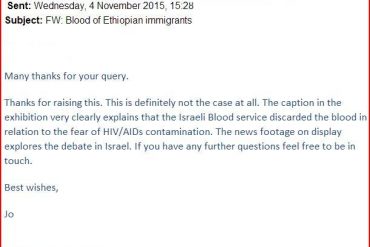Over the years the BBC has repeatedly demonstrated that it has neither the authority nor the expertise – let alone the remit – to define antisemitism.
The fact that the corporation has a dismal record on preventing the appearance of antisemitic discourse in its own content, including on BBC-run message boards and phone-in shows has not prevented it from passing judgement on complaints concerning antisemitism or purporting to explain anti-Jewish racism from other sources to its audience.
If one imagined that four years of covering the UK Labour party antisemitism scandals would have raised awareness and understanding of that form of racism in BBC newsrooms, a recent letter from the Director of BBC News indicates that is not the case.
The Jewish Chronicle’s editor explains how a repeat BBC interviewee on the topic of public health was shown by his paper to have a past record of antisemitic statements.
“Some of his messages appear to be a clear breach of the internationally accepted IHRA definition of antisemitism. The examples cited by IHRA include: “Drawing comparisons of contemporary Israeli policy to that of the Nazis” and “Holding Jews collectively responsible for actions of the state of Israel.””
In response to a subsequent letter from Conservative Friends of Israel, the Director of BBC News, Fran Unsworth, (who has apparently been tipped as a future BBC Director General) wrote:
“I quite understand your strength of feeling about the views you have ascribed to Professor Ashton on Israel and Zionism…Professor Ashton did not, of course, make any comments of the kind that you describe in this programme and I hope you understand that I would have grave doubts about the impact on freedom of speech, and the BBC’s ability to report freely and impartially, if we were to ban contributors from speaking on the subject of their acknowledged expertise because of the political views they have expressed, however abhorrent some members of the audience may find them.” [emphasis added]
The JC’s Stephen Pollard wrote:
“I keep reading those words and every time I do I find them no less staggering.
Ms Ashton refers to remarks which are, I repeat, prima facie antisemitic as being “political views” which “some members of the audience” may find abhorrent.
Antisemitic remarks, according to the BBC’s head of news, are merely “political views”. Yeah, some people won’t like them but, heh, others will and it’s not our job to take sides in the day-to-day cut and thrust of political views, you know. Antisemitism – it’s just a political choice.”
The Campaign Against Antisemitism reported a similar response from Sky News and commented:
“Antisemitism is not a ‘political view’. That is the opposite lesson from the past several years of British politics. If the news editors at both channels had made reference to the International Definition of Antisemitism, they would have recognised that Prof. Ashton was not espousing political views but spewing racist bile…”
When the International Holocaust Remembrance Alliance (IHRA) adopted a working definition of antisemitism four years ago we asked ‘when will the BBC?’, noting that “[t]he need for the BBC to work according to an accepted definition of antisemitism…is obvious”.
That necessity was further highlighted by much of the BBC’s coverage of the UK Labour party’s antisemitism scandals. As Unsworth’s response sadly illustrates, adoption of the clear, concise and widely accepted (including by the UK government and individual MPs) IHRA definition of antisemitism by the British media – and in particular the publicly funded national broadcaster – is much needed and long overdue.
Related Articles:
BBC ONE’S ‘PANORAMA’ ON LABOUR ANTISEMITISM RAISES ANOTHER ISSUE
BBC NEWS TRIES – AND FAILS – TO EXPLAIN ANTISEMITISM AND ANTI-ZIONISM
BBC NEWS GIVES FREE REIN TO ANTI-ISRAEL CAMPAIGNER’S FALSEHOODS
BBC’S DOMESTIC AUDIENCE SOLD SHORT ON LABOUR ANTISEMITISM YET AGAIN





